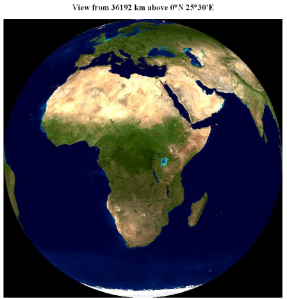The launch of the Es’Hail-2 satellite into a geostationary orbit at 25.5 degrees East is planned for December 2016. The coverage area of the amateur radio Narrowband (NB) and Wideband (WB) transponders should extend from Brazil to Thailand.

Es’hail-2 coverage area
Es’hail 2 will carry two “Phase 4” amateur radio non-inverting transponders operating in the 2400 MHz and 10450 MHz bands. A 250 kHz bandwidth linear transponder intended for conventional analogue operations and an 8 MHz bandwidth transponder for experimental digital modulation schemes and DVB amateur television.
Narrowband Linear transponder
2400.050 - 2400.300 MHz Uplink
10489.550 - 10489.800 MHz Downlink
Wideband digital transponder
2401.500 - 2409.500 MHz Uplink
10491.000 - 10499.000 MHz Downlink
Equipment requirements:
X-Band 10 GHz Downlink:
– 89 cm dishes in rainy areas at EOC like Brazil or Thailand
– 60 cm around coverage peak
– 75 cm dishes at peak -2dB
– NB: linear vertical polarisation
– WB: linear horizontal polarisation
S-Band 2.4 GHz NB-Uplink:
– narrow band modes like SSB, CW
– 5W nominal Uplink power (22.5 dBi antenna gain, 75cm dish)
– RHCP polarisation
S-Band 2.4 GHz WB-Uplink (DATV):
– wide band modes, DVB-S2
– peak EIRP of 53 dBW (2.4m dish and 100W) required
– RHCP polarisation
Presentation on Es’hail by Peter Guelzow DB2OS, President of AMSAT-DL, at the 2013 AMSAT-UK Colloquium
http://www.batc.tv/streams/amsat1306
@https://amsat-uk.org/



